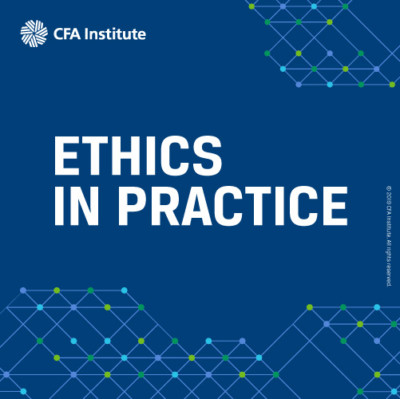Ethics in Practice: Pricing an Initial Public Offering. Case and Analysis–Week of 25 March
How did you do evaluating this week’s (25 March) case? Check out the analysis below.
Case
Paulson is a portfolio manager at Isaac Investment Advisers, managing four funds that invest in UK equities. In anticipation of an initial public offering (IPO) by the Shore Group, an online retailer of short-term vacation rentals, Paulson conducts extensive research on the company and meets with Shore Group management. He discusses the company and its future prospects with other market participants to gauge the level of interest in the IPO. Along with this research, Paulson relies on his experience of previous IPOs a well as his expertise gained from investing in the specific sector and the wider market to determine a valuation of the new shares. Paulson then discloses his planned order for the stock, including its price limit and its size, with the firm managing the IPO process for Shore Group.
Afterward, he contacts fund managers at competitor firms to suggest that they coordinate their efforts and cap their orders for an allocation of shares at the same price limit. In an email to another fund manager he states, “Some collective bargaining from the buy side is not a bad thing. The fact is there are relatively few funds with reasonable firepower in the small-cap IPOs. To protect our investors, I think we should do more of this — not be bullied by the brokers who say, ‘This is coming at X price! Like it or not.’”
Paulson’s actions are
- appropriate because he is working to get the best stock price for his clients.
- inappropriate because he is trading on material nonpublic information obtained by meeting with company management.
- appropriate because he conducted thorough due diligence on the Shore Group IPO.
- inappropriate because he shares the confidential information of Isaac Investment Advisers with the firm managing the IPO for Shore Group.
- none of the above.
Analysis
Paulson’s actions to coordinate with fellow fund managers to affect the price of the Shore Group’s IPO is an attempt at market manipulation. CFA Institute Standard II(B): Market Manipulation prohibits CFA Institute members from engaging in practices that distort prices with the intent to mislead market participants. Paulson’s actions to coordinate with fellow fund managers to affect the price of the Shore Group IPO are an attempt at market manipulation. His actions undermine the proper price formation process of the IPO, which would cause harm to market participants. His actions could cause harm to issuers and existing shareholders because they could result in less capital being raised and existing shareholdings being valued at less than they otherwise might have been.
IPOs play a vital role in helping companies raise capital in the financial markets and are predicated on natural market forces determining pricing. Issuers and investors expect the prices to be fair and reflective of genuine market demand. When investors attempt to undermine this price formation process by artificially driving down the price of an IPO, the efficiency, functioning, and stability of the financial markets are threatened. Paulson has a duty to protect the integrity of capital markets even over his responsibilities to his clients. Meeting with company management is a normal part of the due diligence process.
The facts of the case do not indicate that he received material nonpublic information in meeting with company management. The research Paulson conducts appears to show that he exercised diligence, independence, and thoroughness in analyzing the Shore Group IPO. Sharing the price limit and order size with the firm running the Shore Group IPO is part of the process to determine at what price to offer an IPO by gauging demand from institutional investors. Because the responses do not address market manipulation, choice E is the best response.
This case is based on a February 2019 Enforcement Action by the Financial Conduct Authority.
Let us know what you think of Ethics in Practice by taking this short survey.
Have an idea for a case for us to feature? Send it to us at [email protected].
More About the Ethics in Practice Series
Just as you need to practice to become proficient at playing a musical instrument, public speaking, or playing a sport, practicing assessing and analyzing situations and making ethical decisions develops your ethical decision-making skills. The Ethics in Practice series gives you an opportunity to “exercise” your ethical decision-making skills. Each week, we post a short vignette, drawn from real-world circumstances, regulatory cases, and CFA Institute Professional Conduct investigations, along with possible responses/actions. We then encourage you to assess the case using the CFA Institute Ethical Decision-Making Framework and through the lens of the CFA Institute Code of Ethics and Standards of Professional Conduct. Then join the conversation and let us know which of the choices you believe is the right one and explain why. Later in the week, we will post an analysis of the case and you can see how your response compares.
Image Credit: ©CFA Institute

